It looks like your relationship style is...

Based on your responses, you’re someone who is able to easily and quickly connect with others on an intimate level. You enjoy closeness and feel comfortable opening up and sharing with others. You have no problem committing to a relationship. The problem is that you find it difficult to relax and accept that a relationship is solid and secure. You’re highly sensitive to even the slightest indication that a partner or friend might be unhappy with you and tend to constantly seek reassurance that the relationship is safe.
In romantic relationships you tend to be hyper-sensitive to your partner’s actions and moods, often taking things too personally. You become jealous easily and often worry that your partner will lose interest in you or find someone else more attractive.


When anxious...
When you’re feeling anxious, if your partner is available and willing to reassure you, you calm down and feel happy and settled but often it’s only a matter of time before something triggers your relationship anxiety again.
As a result, your partner probably becomes frustrated at times and when they express their irritation or withdraw from you, this only heightens your fears, causing your anxiety to go into overdrive. You know it’s a vicious cycle but as much as you try to tell yourself not to be so insecure, you feel out of control when those thoughts and feelings arise.
Sometimes...
Sometimes when your emotions are running high you might be argumentative, angry or controlling and if you’re honest, sometimes you stir the pot to create a little drama because any connection is important to you, even if the connection occurs through conflict. If someone you care about is indifferent towards you, it drives you crazy.
You might find that you continually get into relationships with people who are emotionally distant and who trigger your anxiety, leading you to blame the other person for your insecurities. This might be partly true but it could also be the case that when you meet someone who is safe and emotionally available, you perceive them as ‘boring’ while the person who plays hard to get is more intriguing to you. This sometimes happens when you mistake the highly charged emotional energy of the relationship as ‘passion’ when it is, in fact, a sign of an unhealthy relationship dynamic.

Here’s the kicker:
Only slightly more than half the population (around 60%) has a secure attachment. The other 40% have some variation of an insecure attachment - either anxious or avoidant. If your caregivers weren’t consistently available so that you didn’t feel you could rely on them to meet your needs, you might have developed an anxious attachment style. If your caregivers were physically absent or emotionally distant or unavailable and you learned that you couldn’t count on them to meet your needs, you might have developed an avoidant attachment style.
The figures (60% secure) apply to both children and adults, although it IS possible for your attachment style to change over time, so even if you feel you didn’t receive the most positive, consistent and loving parenting, that doesn’t mean you’re guaranteed to have an insecure attachment. And if you do, it’s entirely possible to change!
What can i do?

1. Be kind to yourself
When you realise that there’s a reason why you’re hyper-sensitive to possible rejection and that it’s mostly to do with how your brain’s been wired (maybe from when you were very young), you can stop being so hard on yourself. In fact, being patient with yourself and giving yourself the empathy and compassion you would want from others can even help you to undo some of the emotional damage from the past.
2. Manage your emotions
When that inner alarm goes off, you become totally preoccupied with someone else’s behaviour, start imagining worst case scenarios and fearing rejection. Rather than jumping to conclusions or looking to the other person for reassurance, it’s important to learn to manage those thoughts and feelings as much as you can on your own. Learning how to practice mindfulness is a highly effective way of putting distance between you and your thoughts so that they don’t feel so real, and of sitting through uncomfortable feelings without reacting in a way that might damage your relationship.


3. Evoke a feeling of security
When you’re feeling anxious and insecure, studies have shown that consciously evoking a feeling of security can help to calm your nervous system and feel more positive about your relationships. Spending time with pets is one way to activate a feeling of emotional warmth and security because of the unconditional love most people feel from their pets (pets are awesome!) Thinking about someone else in your life - past or present - who makes you feel supported, encouraged and accepted can also help to activate those internal feelings of security.
*Disclaimer: This quiz is not a validated psychometric assessment and is intended to be a guide only. If you're interested to know more about your attachment style, see this site.

